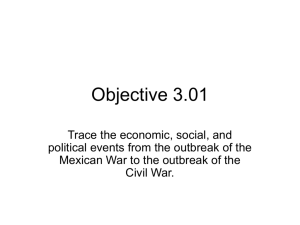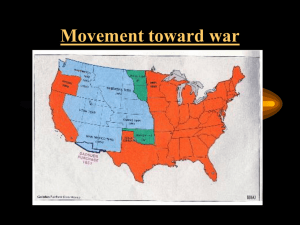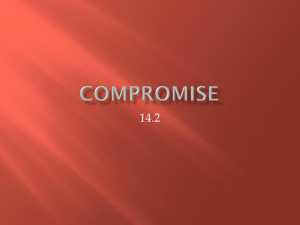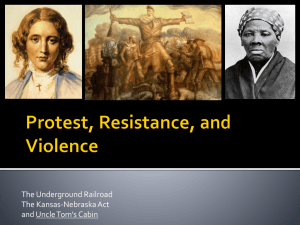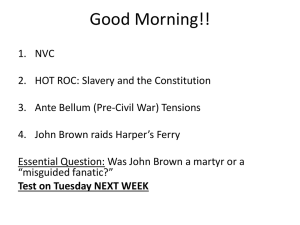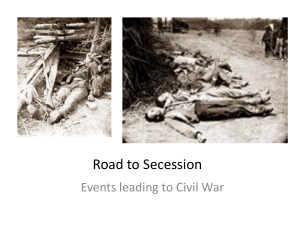Compromises Fail
advertisement
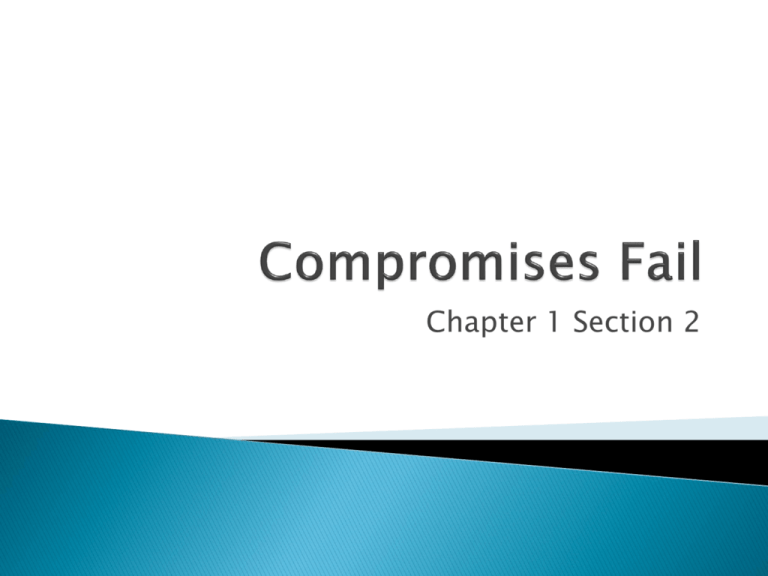
Chapter 1 Section 2 California was admitted to the Union as a free state. The Compromise also banned slave trading in Washington D.C. To Please the North Popular sovereignty would decide the fate of slavery in the rest of the Mexican Cession. Citizens of that territory would vote on slavery when they became states. Rigorous fugitive slave laws were passed To Please the South Outrage in the North ◦ The Fugitive Slave Act forced northern states to return any runaway slaves back to their owners in the south. ◦ This allowed southern slave owners to claim African Americans as escaped slaves, whether they were actually former slaves or not. ◦ Northerners fought against the Fugitive Slave Act by sometimes violently resisting slave catchers. Written by Harriet Beecher Stowe, the daughter of an abolitionist. Told the story of a slave who was mistreated and eventually killed by his master. The book was criticized as propaganda by southerners, but had a major effect on northerners’ views of slavery. Proposed by Senator Stephen Douglas, the Kansas-Nebraska Act suggested that the territories be split into the Kansas and Nebraska territories. These new territories would eventually become free states, so Douglas proposed popular sovereignty in those territories. Northerners were angry when the bill passed. The Kansas-Nebraska Act caused thousands of settlers to move to Kansas to take part in the slavery vote there. The original vote resulted in legal slavery, so anti-slavery citizens demanded a re-vote. Growing Violence ◦ Because of the two governments in Kansas, violence grew in the territory. ◦ John Brown led antislavery fighters in an attack on a proslavery settlement at Pottawatomie Creek. Charles Sumner, a U.S. senator, spoke out against slavery in Kansas in the Senate, specifically calling out Andrew Butler, the senator from South Carolina. Butler’s nephew entered the senate chamber and beat Sumer with a cane for his attack on Butler.



